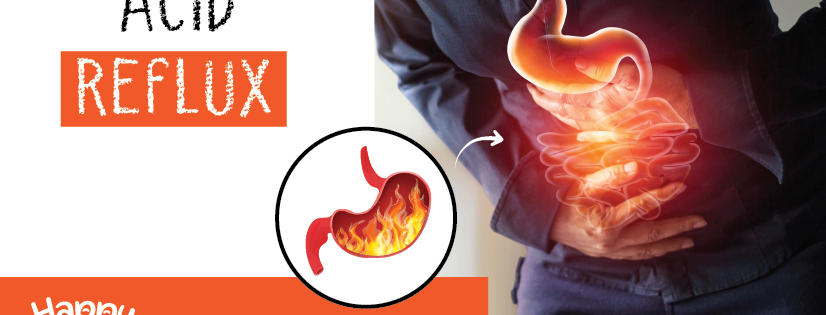Are you constantly battling that uncomfortable burning sensation in your chest? Well, you might be dealing with Gastro-Esophageal Reflux Disease (GERD), a condition where stomach acid sneaks back into your throat, triggering irritation and discomfort.
Normally, a sphincter muscle (referred to as a stomach gate) closes off your stomach and keeps acid and food you eat inside. In reflux action, this sphincter weakens. They may become cancerous if repeatedly exposed to acid.
Often, the first line treatment your doctor will offer is medication, particularly Proton Pump Inhibitors (PPIs). These neutralize the stomach acid and can be lifesavers for many! But, prolonged use without a doctor’s proper assessment might cause issues. We need stomach acid to digest and absorb nutrients and kill off harmful germs normally present in food. Long-term PPI use may then lead to nutrient deficiencies, bone health concerns and frequently getting sick.

DIET AND REFLUX, THERE’S A CONNECTION
Turns out, diet plays a significant role in reflux symptoms. Specific foods and meal time habits may trigger reflux. But, these triggers are not the same for everyone. Doing an in-depth individualized assessment of your own eating pattern and symptoms is a key – unnecessarily eliminating food can do more harm than good! As dieticians, we know there’s no one-size-fits-all solution, every individual is different, and so is their reflux
WHAT ARE THE MOST COMMON TRIGGER FOODS?
Certain foods are known to irritate the sphincter between your throat and stomach. These are more likely to trigger reflux symptoms. This includes spicy foods, acidic foods, caffeine, alcohol, fizzy drinks, peppermint and high fat or fried food. But, your level of tolerance of these triggers is unique. You may react to all, just one or only when you consume multiple in one sitting.
NON-FOOD TRIGGERS
Beyond specific foods, lifestyle and eating habits also play a role. Think large meals, skipping meals, eating too fast, not chewing well, stress (yes, there’s a connection!) underlying constipation and lying down after eating. Finding the balance between navigating these lifestyle habits alongside food triggers is important for symptom relief. You want to be eating a well-rounded meal plan that minimizes reflux symptoms, meets all your nutrients requirements and allows you to still enjoy your favorite foods. Burrata, pizza, fries and cold drinks on a Friday night, we’re thinking of you.
If reflux is affecting you, finding your unique triggers and liberalizing your diet as much as possible is the goal. Working on food and lifestyle can be the difference between over-relying on PPIs and reducing unnecessary use if supported by your doctor.
Need personalized support to manage your reflux or want to know more about GERD? Book an appointment with our team of dietitian today @www.divyanshihealthcare.com



